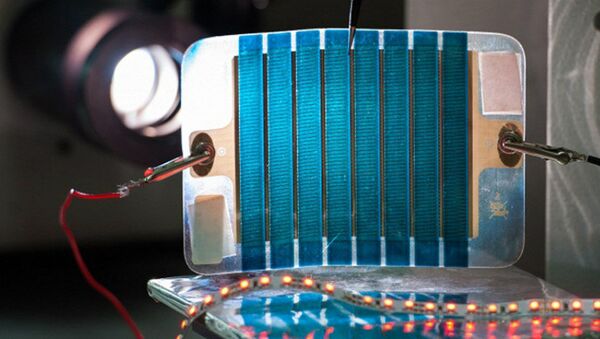Led by Professor Anvar Zakhidov, MISIS scientists created a thin-filmed photoelectric cell based on hybrid metal-organic compounds called perovskites, which in turn made it possible to hammer out an advanced solar battery, according to the website.
It said that "these perovskites can convert solar energy radiation into electric energy with a performance coefficient of more than 15 percent, and with a planned rate of 20 percent."
Russian scientists together with US ones (University of Texas at Dallas) created flexible solar batteryhttps://t.co/kIFsKUxb6A
— Irina Zerchaninova (@GreentieIrina) 13 апреля 2016 г.
"Before long, this new technology will give way to light, flexible, and cheap solar panels based on perovskites to be used for charging and powering a bevy of electronic devices, from tablets to buildings' electrical grids," the website said.
During mass production of the solar batteries, this price difference is most likely to be increased by at least six times, scientists said, also pointing to toxic production of the silicon solar batteries.





